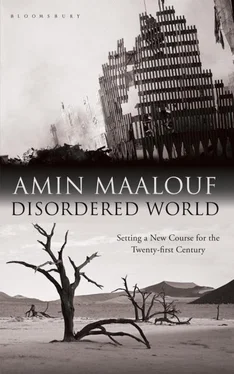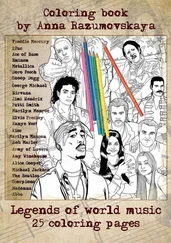I say this by way of a reminder of the obvious fact that our civilisations have always been composite, shifting and permeable. And to express my surprise that today, when civilisations are more intermingled than ever, we are told that they are mutually implacable and destined to stay that way.
And what of today, now that thousands of Chinese party workers are trained in California and thousands of Californians dream of moving to China? Now that we have to make an effort as we travel the world to remember whether we have woken up in Chicago, Shanghai, Dubai, Bergen or Kuala Lumpur? Now that we are being told, on the strength of some examples of puzzling behaviour, that civilisations will remain distinct and that clashes between them will always be the driving force of history?
If our civilisations feel the need to affirm their uniqueness so stridently, it is precisely because their uniqueness is becoming indistinct.
What we are witnessing today is the twilight of distinct civilisations, not their advent or apotheosis. They have had their day and the time has come to transcend them all: to capture their benefits and extend to the whole world the advantages of each, and to reduce their capacity for harm; to build a common civilisation little by little, based on two intangible and inseparable principles: the universality of essential values and the diversity of cultural expression.
To avoid any misunderstanding, let me add this: in my view, respecting a culture means encouraging the teaching of the language through which it is expressed, and promoting knowledge of its literature, theatre and cinema, and its other manifestations in art, architecture, craftsmanship, cuisine and so on. Conversely, being indulgent towards tyranny, oppression, intolerance or the caste system, or towards forced marriage, female genital mutilation, ‘honour’ crimes or the subjugation of women, towards incompetence, negligence, nepotism, widespread corruption, towards xenophobia or racism on the grounds that they emanate from a different culture, does not constitute respect in my view, but disguised contempt. It is the behaviour of apartheid, even if it is done with the best of intentions. I have said this already, but I am keen to repeat it in these final pages so that there is no ambiguity about what I believe cultural diversity is and is not.
I shall continue to use the broad term ‘civilisation’ in the singular and the plural. It seems perfectly legitimate to speak sometimes of human civilisation s , and sometimes of human civilisation. Nations, ethnic groups, religions and empires all have their own particular courses. But the human race has its own adventure in which all of us, individuals and groups, are embarked.
It is only if we believe in this common adventure that we can make sense of our own specific journeys. And it is only if we believe that cultures possess equal dignity that we have the right to evaluate and even judge them, in accordance of course with values which are part of our common destiny and which are above all our civilisations, traditions and beliefs. For there is nothing more sacred than respect for human beings, the preservation of their physical and moral integrity, the preservation of their capacity to think and express themselves; and also the preservation of the planet on which they stand.
If we want this fascinating adventure to continue, we have to go beyond our tribal idea of civilisations and religions, free the former from the iron grip of ethnicity, rid the latter of the identity-based poison which distorts and corrupts them and turns them away from their spiritual and ethical vocation.
In this century, we shall have to choose between two visions of the future.
In the first, humanity is divided into global tribes which fight and detest one another but, as a result of globalisation, feed more every day on the same bland cultural broth.
In the second, humanity is aware of its common destiny and as a result is united around the same essential values, but continues to develop more than ever the richest, most diverse expressions of culture, preserving all its languages, artistic traditions, crafts, sensibility, memory, knowledge and so on.
On the one hand, then, we have several ‘civilisations’ which clash, but which imitate each other culturally and become homogeneous, and on the other a single human civilisation, but one which displays an infinite diversity.
To follow the first of these courses, all we need do is continue to drift along lazily, buffeted by shocks, as we do today. Choosing the second course will require a life-saving step change on our part. Are we up to it?
On this subject as on others, I am perpetually torn between extreme worry and hope. At times, I tell myself that in its darkest hours humanity always knows how to find the resources necessary to extricate itself, even at the cost of very heavy sacrifices. And at others, I tell myself it would be irresponsible always to expect a miracle.
My belief at the moment is that the paths to a solution are undeniably diminishing but that they are not yet closed off. What needs to be promoted is not despair but urgency. That is indeed the sole reason for this book’s existence, from its first page to its last. To say that it is late, but not too late. To point out that it would be suicidal and criminal not to mobilise all our energies to prevent collapse and decline. To suggest that we can still take action, but that we must be bold and imaginative rather than weak-willed, timorous and conventional; that we must dare to overturn our usual thought patterns and ways of behaving, upset our imaginary certainties and rebuild our scale of priorities.
Of all the threats awaiting us in this century, the most perceptible today, as well as the best-studied and documented, is climate change. There is every reason to believe that in the decades ahead it will provoke cataclysmic disturbances whose extent we are not yet able to measure. Sea levels may rise by several metres, engulfing many coastal cities and other maritime zones inhabited by hundreds of millions of people. Because of the disappearance of glaciers and changes to rainfall patterns, major rivers could dry up, condemning entire countries to desertification. One can imagine the tragedies — massive displacements of people, deadly struggles — which could result from such a trend.
This development does not belong to a vague and distant future. We already know that it will dramatically affect the existence of our children and grandchildren; it is probable that the generations born in the second half of the twentieth century will still have time, I dare say, to suffer from it themselves.
I am a sceptic by temperament. When I hear alarm bells, I bridle, take myself to one side, and try to ascertain calmly whether we are being manipulated. We have often been told that apocalyptic disasters are coming, only to find a few months or even weeks later that they have vanished, thank God, leaving no trace. Will it not be just the same with climate change? Were we not told just a few decades ago that the world was in fact heading for a new ice age? Writers and film-makers seized upon this theme with varying degrees of success.
So when I started hearing warnings about a global warming rather than cooling, the news naturally aroused my curiosity without greatly diminishing my scepticism.
When scientific studies became more numerous and insistent and when their results began to agree, I wanted to learn more.
Lacking a scientific education worthy of the name, I had first to plunge into the most elementary books in order to understand what was being said and to understand the much-discussed ‘greenhouse effect’, how it works and why it has been causing so much concern for some time. To understand what the increase in CO 2in the atmosphere means, and what its causes and consequences could be. To understand also why there is such fear about the Greenland and Antarctic ice sheets melting, but less about the melting of the Arctic Ocean, which it is now possible to cross in a boat from one side to the other during the summer months for the first time in millennia.
Читать дальше












